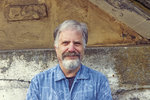After years of trying to be in the front row of the music scene, Charlie Bermant took a step back, and discovered he liked the view.
“Maybe I needed to not look so close at things to enjoy …
This item is available in full to subscribers.
We have recently launched a new and improved website. To continue reading, you will need to either log into your subscriber account, or purchase a new subscription.
If you had an active account on our previous website, then you have an account here. Simply reset your password to regain access to your account.
If you did not have an account on our previous website, but are a current print subscriber, click here to set up your website account.
Otherwise, click here to view your options for subscribing.
* Having trouble? Call our circulation department at 360-385-2900, or email our support.
Please log in to continue |
|


After years of trying to be in the front row of the music scene, Charlie Bermant took a step back, and discovered he liked the view.
“Maybe I needed to not look so close at things to enjoy them,” said the retired rock journalist, who’s written about his experiences in a self-published book titled “My Cultural Journey: Never Enough.”
Bermant is set to talk about that book and tell stories from his music days from 7 to 8:15 p.m. on Wednesday, Aug. 23 at the Port Townsend Public Library, 1220 Lawrence St.
“Never Enough,” which combines personal memoir with music and pop culture journalism, traces Bermant’s adventures through the 1960s and ’70s music scene – through cultural and technological changes – to the more contemplative destination he’s reached.
Bermant admits there are likely many people out there who not only are better writers than he is, but also have had closer encounters and experiences with the musicians he’s met.
“But they’re not writing [those experiences] down,” he said. And Bermant has.
THE RIGHT TIME
“A lot of the things I experienced were just being in the right place at the right time,” Bermant said.
He grew up mesmerized by watching The Beatles on television, and at 15 years old, found himself at Woodstock with a group from a music camp.
A self-described “dweeb,” Bermant said he spent his youth as an overly excited fan obsessed with studying every aspect of the music and musicians he idolized, purchasing every record he could get his hands on and pursuing a career in which he wrote to receive the admiration of the musicians he interviewed.
“I wanted the artists to like me,” Bermant said of how he approached interviews and articles. “Down the road, I realized that none of them did.”
For the stars, it was just another interview and another article for another magazine.
AN HONEST PICTURE
Bermant’s first self-published book, “A Serious Hobby,” was a compilation of 30-40 years of those articles.
A decision to rewrite one of them – a 2012 interview with Mott the Hoople’s Ian Hunter, which Bermant described as “the worst interview I ever did” – led him on the journey of writing “Never Enough.”
“This is a bit more honest,” he said of the memoir. “Sometimes, it’s better to paint an honest picture.”
And writing about his adventures surrounding those interviews – for example, those with his first celebrity crush, Diana Rigg, and Beatles lead guitarist George Harrison – “shows more about me than it does about them,” Bermant said.
Bermant started writing the memoir about two years ago. Once he got more than halfway through, he realized he might as well finish it.
At the start of writing “Never Enough,” he took a seminar at the Writers’ Workshoppe in Port Townsend. One thing he walked away with was the understanding that he needed to show a transition from beginning to end: From being a fanatic to having a more introspective appreciation of the music he loves.
The other takeaway: “Don’t be afraid to look stupid.” Bermant said there are plenty of “stupid” moments he included – and some he didn’t.
The stories are told from different points of view, using first person and second person. Bermant used the second person as a way to talk about experiences he might be less willing to share in the first-person voice, he said.
Bermant also includes reconstructed journals and transcripts.
The introduction to “Never Enough” is a fake interview transcript of someone interviewing him on the radio. “Maybe I’m a lazy reader, but I skip introductions,” Bermant said. So he decided to write one that was entertaining.
“It makes people laugh,” he said. “It explains why I wrote [the book].
And while that interview is a fake (though inspired by a real experience), Bermant said he’s tried to be as truthful as he can be with the events he describes in the book. He has cross-checked dates and set lists on the internet and with his own recollections, and even pinpointed the specific time a flight arrived.
ENOUGH
However, like any memoir, it’s a person’s experience, and thus subjective, he said. Bermant said that for many years, he tried to own his experiences and the music. “This is my music,” he would say. “I was at Woodstock and you weren’t.”
He has realized that it was all part of a cultural landscape he found himself in.
“All these experiences don’t belong to me,” Bermant said. “Woodstock doesn’t belong to me.”
And after years of pursuit, of never having enough, it’s time for him to sit back, listen to music and enjoy his cultural journey from the sidelines.
He’s had enough.“Almost,” Bermant said.